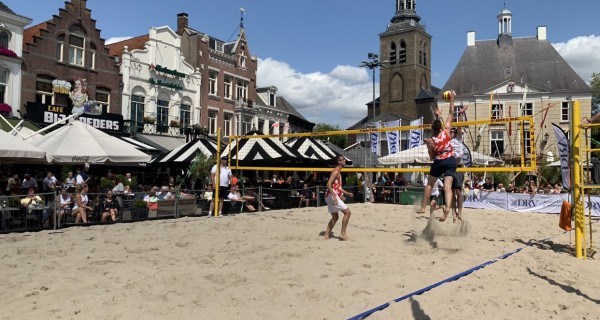Greater opportunities under the new EU Blue Card Directive 2021/1883

In 2021, the European Parliament and the Council of the EU adopted the new Blue Card Directive (EU Directive 2021/1883). Through adopting this new Blue Card Directive, the EU legislators strive to establish a clear and transparent EU wide admission system to attract and retain highly qualified workers from third countries and to promote the mobility of these workers. This new Blue Card Directive replaces and repeals its predecessor, the EU Directive 2009/50.
According to article 31 of this new Blue Card Directive, the EU Member States should have transposed this new Directive into their domestic laws by 18 November 2023. However, the Netherlands Government has not managed to transpose this new Directive into Dutch domestic laws before the deadline. By letter of 28 November 2023, the Netherlands State Secretary of Justice and Security, Mr. Van der Burg, informed the Dutch Parliament about the progress of the required transposition. The State Secretary believes that the new domestic laws will come into effect in the first quarter of 2024. When a Member State fails to transpose an EU directive in a timely fashion, certain provisions of a directive can still have direct effect and people can invoke the directive. This rule applies when the provisions of a directive are unconditional, sufficiently clear and precise. In light hereof, it is worth examining the provisions of the new Blue Card Directive now. In this article, we will discuss this new directive and some of the positive changes that it will bring to the existing Dutch immigration system.
An employment agreement of six months or longer
Under the new directive, the employment agreement must be valid for six months or longer if one wants to qualify for a European blue card.
Longer job search period for some blue card holders
According to current Dutch laws, when a blue card holder loses his/her job, the blue card holder will have a maximum period of three months to look for a new job. If the blue card holder cannot find a new job within the three-month search period, the IND can revoke his/her residence permit as from the end of the three-month search period. Under the new directive, one who has been working as a blue card holder for at least 2 years in a Member State will get a six-month search period. People who have worked less than 2 years as a blue card holder will retain a three-month search period.
Smoother pathway towards the status of EU long term residence
Under the old blue card directive, it was possible to cumulate residences as a blue card holder in different Member States towards the status of EU long term residence. For example, Jane worked three years as a blue card holder in Germany and she moved to the Netherlands as a blue card holder. Over the last two years, Jane has been working as a blue card holder in the Netherlands. Then, under the old blue card directive, Jane can cumulate the three years in Germany and the two years in the Netherlands for the purpose of applying for the status of EU long term stay in the Netherlands.
Under the new directive, a greater number of people will be able to carry over their previous stays in other EU Member States to a different Member State where they remain or become a blue card holder. Pursuant to article 18 of the new directive, periods of legal stay as an EU blue card holder, a highly skilled migrant, a scientific researcher or a student in a Member State can be carried over to another EU Member State where one applies for the status of EU long term stay. When applying for the status of EU long term stay, one must have lived at least 2 continuous years as a blue card holder in the state where he/she applies for EU long term stay. For example, Marie has been studying six consecutive years in Germany and Marie manages to find a job in the Netherlands as a blue card holder. After working two consecutive years as a blue card holder in the Netherlands, Marie will be able to apply for an EU long term permit with the IND.
Family members can carry over their previous residences in other EU Member States
Pursuant to article 17 of the new directive, family members of an EU blue card holder will be able to carry over their previous periods of legal stay in other EU Member States to a new Member State for the purpose of acquiring an autonomous stay. In the Netherlands, this autonomous stay can be obtained by a family member after living five years as a dependent family member. For the purpose of applying for this autonomous stay, a family member does not need to prove funds, but he/she needs to pass the civic integration exam in the Netherlands.
Special remark on the EU long term permit card and longer absence from the EU tolerated
Blue card holders who obtain the status of EU long term permit will receive a residence permit card with the special remark “Former EU blue card holder.” Holders of such a special EU long term permit (with the remark of “Former EU blue card holder”) shall not lose their EU long term status in the event that their absence from the EU does not exceed 2 consecutive years.
Undoubtedly, thanks to the new Blue Card Directive, the EU blue card status will become much more attractive than many Dutch national permits (such as, highly skilled migrant permit). Time will tell if the new EU blue card will become very popular among highly qualified expats.
Should you have any questions about the EU blue card or other issues of Dutch immigration law, please feel free to contact Mynta Law.

Related articles
- Dutch student visa: everything that you need to know
- Introducing the Entry/Exit System: Are you ready for the EES?
- Removal of labour market restrictions for EU long term permit holders who study in the Netherlands
- Permanent residence and former international students who stayed outside the Netherlands during the COVID pandemic
- Scientific research visa: a "golden" visa for talented researchers
- New parliamentary Act on IND inaction
- Netherlands Visa for Recent US University Graduates
- How Not To Transfer Your Main Residence - Everything Expats Should Know
